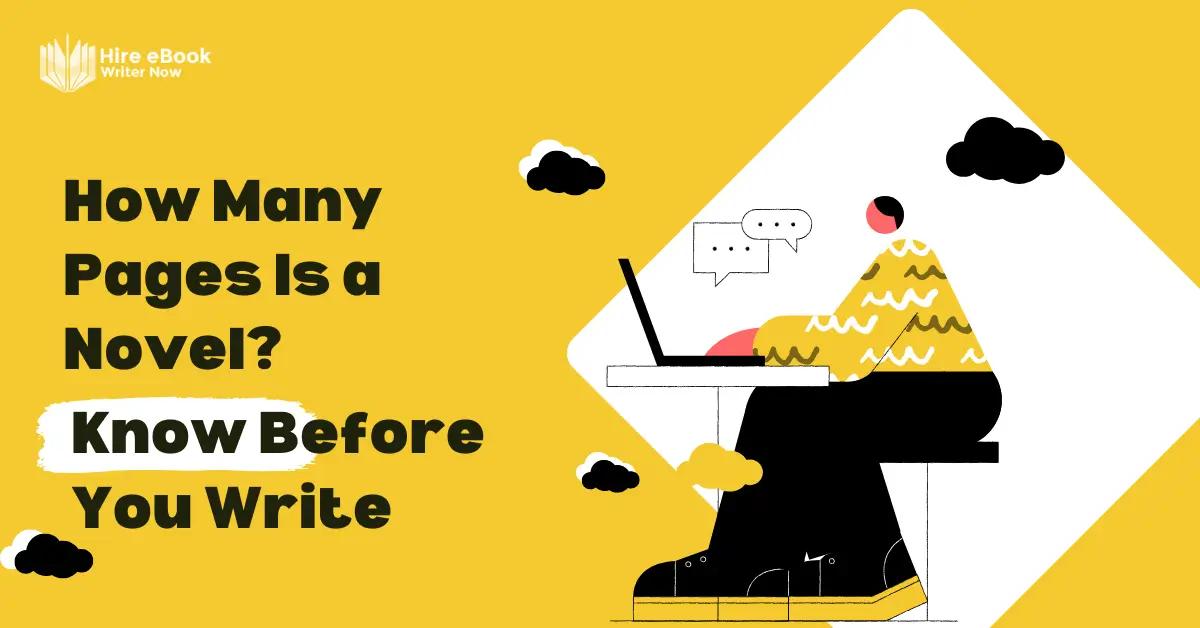So, you’re finally ready to write your novel. You’ve got an idea. You’ve got the time. Maybe you’ve even got a notebook full of character names you’ll probably change halfway through. But then, bam! You hit a wall. You wonder: how many pages is a novel supposed to be, anyway? Are we talking a breezy 150-page read or a doorstop that could double as a weapon?
Take a deep breath. You’re not alone. Let’s break down the numbers, the norms, and the strategies that’ll get your manuscript from “page one” to “publish-ready.”
How Many Pages Is a Novel, Really?
There’s no golden rule, but most published novels land somewhere between 250 and 400 pages. That translates to 70,000 to 100,000 words, depending on your genre, audience, and formatting style.
Here’s a quick cheat sheet:
| Genre | Typical Word Count | Estimated Page Count |
|---|---|---|
| Literary Fiction | 80,000–100,000 | 275–350 pages |
| YA (Young Adult) | 50,000–80,000 | 200–300 pages |
| Sci-Fi/Fantasy | 90,000–120,000 | 350–500 pages |
| Romance | 70,000–90,000 | 250–325 pages |
| Thrillers/Mysteries | 70,000–90,000 | 250–325 pages |
Notice how flexible that is? That’s because “novel” isn’t a rigid category. It’s more like a pizza crust—thin or thick, depending on your taste and toppings.
Why Most Novels Fall Between 250–400 Pages
1. Reader Expectations
Most readers expect a novel to give them time to bond with characters, immerse themselves in the plot, and walk away satisfied. If your story ends at 120 pages, they might think they’ve been shortchanged.
2. Publisher Guidelines
Traditional publishers are cautious. If you’re a first-time author, pitching a 600-page fantasy saga might be a red flag. Why? Cost of printing, editing, and marketing—it adds up fast.
3. Psychological Sweet Spot
There’s something comforting about a novel that’s meaty but not overwhelming. Between 250–400 pages is the Goldilocks zone—not too short, not too long.
4. Formatting Magic
Your font, margins, and line spacing can influence the page count. Standard formatting (Times New Roman, 12pt, double-spaced) generally puts 250 words on a page.
5. Genre Norms Are Real
A poetry collection? Shorter. A sci-fi epic? Buckle up. Knowing your genre’s typical page range will help you write to market without selling your soul.
Is There a Benchmark or Are You On Your Own?
Great question. There are benchmarks, especially if you plan to query literary agents or work with traditional publishers. But if you’re self-publishing or working with indie platforms like Hire eBook Writer Now, you’ve got more freedom to play with structure and length.
That said, readers still expect consistency. A novel isn’t just fiction—it’s a long-form work that delivers depth. (Yes, in case you’re wondering, what is the difference between novel and fiction? Fiction is a genre. A novel is a format.)
So even with creative freedom, veering too far from the norm can confuse or disappoint your audience.
How to Reach the Standard Novel Page Count: A Step-by-Step Guide
If you’re staring at a blank page thinking, “There’s no way I can write 300 of these,” don’t panic. Here’s how to scale that wall—one chapter at a time:
1. Start With Structure
Outline your plot in three acts. Not only does this help with pacing, it gives you a roadmap that naturally lends itself to longer content.
2. Set Word Count Goals
Try writing 1,000 words a day. In just three months, you could hit 90,000 words. That’s a whole novel.
3. Expand With Purpose
Each chapter should move the plot forward or develop a character. Use dialogue, flashbacks, and subplots to add layers without filler.
4. Avoid Over-Editing Early
Don’t delete scenes just because they aren’t perfect. You can trim later. Right now, your job is to build volume with quality.
5. Use Feedback Wisely
Not sure what to cut or expand? This is where a poetry editor for hire or a fiction editor can help, especially from a platform like Hire eBook Writer Now, which offers customized editorial guidance.
6. Format Smartly
Remember, 250 words per page is the general rule when formatted traditionally. So, 80,000 words = about 320 pages. That’s a solid full-length novel.
7. Celebrate Milestones
Finished your first 10,000 words? Celebrate. Progress = momentum.
Other Things to Keep in Mind While Writing
- What is the easiest novel to write?
- Some say romance. Others say thrillers. But the truth? It’s the one you’re most excited about. Passion fuels persistence.
- That’s personal, but here’s a tip: start with tension, a question, or something unexpected. Great openers grab attention.
- What are the three basic elements of all novels?
- Character. Plot. Setting. Miss one, and you’re writing a very long brochure.
Final Note
So, how many pages is a novel? Look, there’s no creative police out there arresting authors who write 42,000-word novels. But if you’re serious about making a mark—or selling copies—you’ll want to aim within that 70 K–100 K range.
A compelling novel that respects reader expectations (while flexing your creative muscles) is more likely to succeed. And if you’re looking for expert help to bring your draft to life or structure your word count for success, Hire eBook Writer Now has your back, whether you’re writing from Boston, Austin, or anywhere in between.


